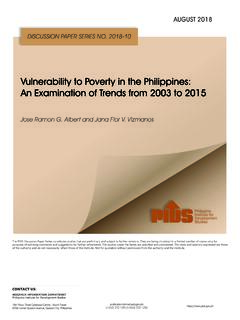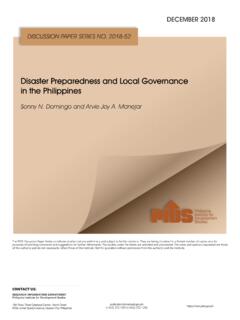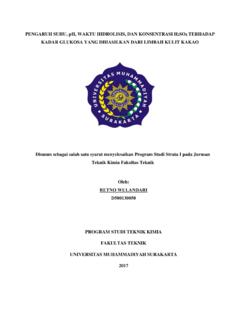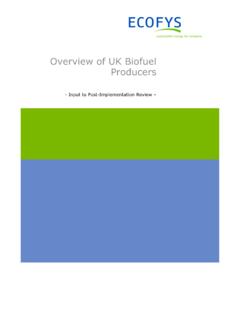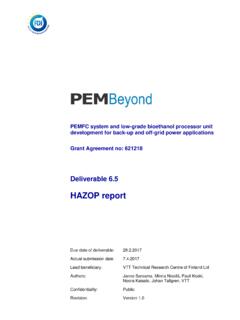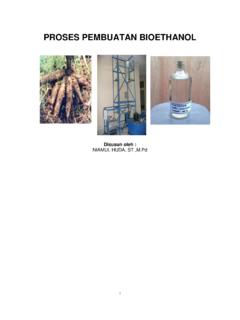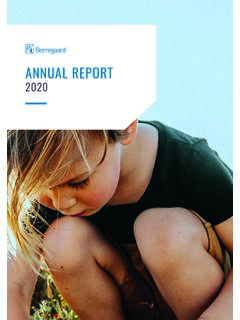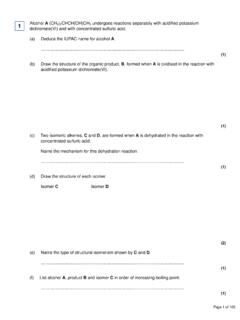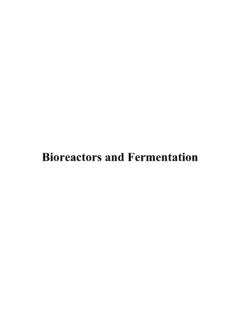Transcription of The Renewable Energy Policy Debate in the Philippines
1 For comments, suggestions or further inquiries please contact:Philippine Institute for Development Studies Surian sa mga Pag-aaral Pangkaunlaran ng PilipinasThe PIDS Discussion Paper Series constitutes studies that are preliminary and subject to further revisions. They are being circulated in a limited number of copies only for purposes of soliciting comments and suggestions for further refinements. The studies under the Series are unedited and views and opinions expressed are those of the author(s) and do not necessarily reflect those of the Institute. Not for quotation without permission from the author(s) and the Institute. The Research Information Staff, Philippine Institute for Development Studies 18th Floor, Three Cyberpod Centris North Tower, EDSA corner Quezon Avenue, 1100 Quezon City, Philippines Tel Numbers: (63-2) 3721291 and 3721292; E-mail: visit our website at Renewable Energy Policy Debatein the PhilippinesDISCUSSION PAPER SERIES NO.
2 2017-17 Maureen Ane D. RosellonApril 2017 The Renewable Energy Policy Debate in the Philippines Maureen Ane D. Rosellon1 Philippine Institute for Development Studies Abstract The Philippines enacted two legislations to promote RE deployment: the Renewable Energy Act of 2008 and the Biofuels Act of 2006, in recognition of the advantages of the use of Renewable Energy (RE) as Energy source. However, there remain issues and criticisms on the promotion of RE technologies and on the implementation of the RE laws. Both sides of the Debate have their justifications for supporting or not supporting the use of RE resources and technologies. The implementation of the RE laws, rules and regulations has also been receiving criticisms. For this paper, data and information on the areas of Debate were collected and examined. Findings provide some reference for revisiting the RE laws and regulations to improve their implementation and produce better outcomes for stakeholders.
3 Keywords: Renewable Energy , Policy Debate , Philippine Renewable Energy Act, Philippine Biofuels Act 1 The author would like to thank Dr. Adoracion M. Navarro for conceptualizing this study and for providing inputs and guidance in the preparation of the paper. The author would also like to thank Dr. Gilberto M. Llanto for his inputs and comments, and Mr. Keith Detros and Ms. Kirsten dela Cruz for their assistance in the data collection. Table of Contents 1. Background .. 4 2. Analytical 5 Socioeconomic effects of Renewable Energy (RE) technology development/ deployment .. 6 Policy instruments in promoting RE development .. 9 3. Profile of the RE sector in the Philippines .. 10 Regulatory and Policy Environment .. 10 Renewable Energy sources .. 14 Primary Energy mix .. 14 RE for electricity generation .. 15 Biofuels program .. 19 4. Global trends in Renewable Energy development and use.
4 23 5. Implementation of policies and emerging issues .. 27 General Policy direction on encouraging more Renewable Energy development .. 27 Net metering for on-site RE generation .. 35 Feed-in tariff Policy .. 36 Priority dispatch Policy .. 37 Policies in RE Act of 2008 which are yet to be 38 Renewable portfolio standards .. 38 Green Energy Option .. 39 Renewable Energy Market .. 39 Incentives that have not yet been implemented .. 39 Compliance with Biofuels Act of 2006 .. 39 6. Conclusion and Recommendations for Policy .. 40 References .. 42 List of Tables Table 1: Key features of laws on Renewable Energy .. 11 Table 2: Electricity Generation Sources .. 15 Table 3: RE-based capacity installation targets .. 18 Table 4: RE-based capacity targets vs installed capacity as of 2015 .. 18 Table 5: Summary of awarded Renewable Energy projects .. 19 Table 6: Biofuels registration/accreditation .. 19 Table 7: Biodiesel measurable targets .. 21 Table 8: bioethanol measurable targets.
5 21 Table 9: Biodiesel measurable targets vs actual production .. 22 Table 10: bioethanol measurable targets vs actual production .. 22 Table 11: Renewable Energy support policies in selected countries .. 26 Table 12: Feed-in Tariff rates in selected East Asian countries .. 36 List of Figures Figure 1: Socio-economic effects of Renewable Energy .. 7 Figure 2: Philippines Primary Energy Mix, 2010, 2014-2015 (in percent) .. 14 Figure 3: Electricity generation by source, Installed capacity (in percent) .. 16 Figure 4: Electricity generation by source, Dependable capacity (in percent) .. 16 Figure 5: Consolidated RE Roadmap .. 17 Figure 6: Biodiesel local production (in million liters) .. 20 Figure 7: bioethanol local production (in million liters) .. 20 Figure 8: Fuel shares in world total primary Energy supply, and product shares in world RE supply, 2014 .. 23 Figure 9: Estimated Renewable Energy share of global electricity production, end-2015 .. 24 Figure 10: Share of renewables in electricity production, 2003-2013 (in percent).
6 25 Figure 11: Annual estimated capital costs for solar PV technologies .. 28 Figure 12: Annual estimated capital costs for wind technologies .. 28 Figure 13: US average levelized costs of electricity by technology, 2010 USD/MWh .. 29 Figure 14: US average levelized costs of electricity by technology, 2013 USD/MWh .. 30 Figure 15: Summary of stages of RE project development .. 31 4 1. Background Like other countries, the Philippines has recognized the impact of high dependence on fossil fuels and exposure to price fluctuations, and the importance of balancing sustainable economic growth with protection of public health, the natural ecosystem and the environment, on matters concerning Energy production. These in mind, two important legislations were passed: Republic Act (RA) 9367 or the Biofuels Act of 2006, and RA 9513 or the Renewable Energy Act of 2008. The Biofuels Act aims to reduce the dependence of the county on imported fuels by promoting the development and mandating the use of locally-sourced biofuels.
7 Under this law, entities that conduct activities related to bio-fuels development such as production, storage, and handling, enjoy incentives such as exemption from specific tax and value added tax, and shall be eligible for financial assistance from government institutions. Complementary to this, the Renewable Energy Act seeks to accelerate the exploration and development of the country's Renewable Energy resources such as biomass, solar, wind, hydro, geothermal and ocean. One major incentive under this law is the Feed-in-Tariff (FiT) scheme for Renewable Energy developers. While laws and policies on the implementation of RE technologies are being executed worldwide in view of the advantages/benefits, there remain issues on the promotion of the Renewable resources as source of Energy . An inherent quality of RE sources (wind, solar, hydro, geothermal, ocean, biomass, and biofuel) is that they will not run out (replenishable) and have minimal negative impact on the environment (National Association of Regulatory Utility Commissioners (NARUC), 2011).
8 Conventional Energy sources ( coal, fossil fuel), on the other hand, can be quickly depleted as natural replenishment/replacement is slow, and its carbon and greenhouse emission levels have received criticisms. However, RE sources can be variable or intermittent dependent on weather ( rain, wind and sunlight); while conventional Energy sources can provide base load power especially for large industries/demand. Cost-wise, RE technologies are generally capital intensive/require large fixed costs. The Foundation for Economic Freedom (FEF), a public advocacy organization in the Philippines , opined that instead of promoting RE projects that are expensive, it would be prudent to rehabilitate and improve existing hydroelectric and geothermal sources, and wait until the cost of the more prominent but more expensive technologies such as solar and wind drops in comparison with conventional Energy sources (Fajardo F.)
9 , 2011). The Philippines , anyhow, has low carbon foot print and is the second largest producer of geothermal Energy . On the other hand, advocates of RE technologies are quick to note that the cost of externalities should also be included in estimating costs of using conventional Energy sources, hence comparing costs should be subject to further study/evaluation. Cost is an important consideration in business/investments and can pose as barriers to entry in the market. In this regard, policies are formulated in an effort to compensate for cost-related barriers by providing incentives and subsidies for RE development in the form of tax credits, special pricing and power purchasing rules, and by lowering transaction costs (Beck & Martinot, 2004). In the Philippines , the RE laws offer different fiscal incentives to attract/encourage investments in RE, such as: income tax holiday, duty free importation of machinery and materials, zero percent VAT, and the Feed-in-Tariff (FiT) scheme.
10 The FiT system is internationally recognized as the most cost-effective measure to achieve higher deployment of RE technologies. Under this scheme, RE developers are guaranteed purchase 5 of their power generation at a cost-based price with reasonable rate of return on investments over a long period of time (Pacudan, 2014). The FEF likens FiT rates to a tax, an amount that would be charged to consumers (Chikiamco, 2012). Apart from being relatively high, especially if compared with rates in other countries (DLA Piper, 2014), the scheme of implementing fixed rates for 20 years received criticism. One view is that advancements in technologies for RE sources will push down costs and prices, explaining the opposition to pegging FiT rates (Chikiamco, 2012). In the biofuels sector, compliance with the targeted blends in fuel is a concern. One of the goals of the Biofuels Act is to develop and utilize indigenous Renewable and sustainably-sourced clean Energy sources to reduce dependence on imported fuels , but this objective appears to be challenging to accomplish.


